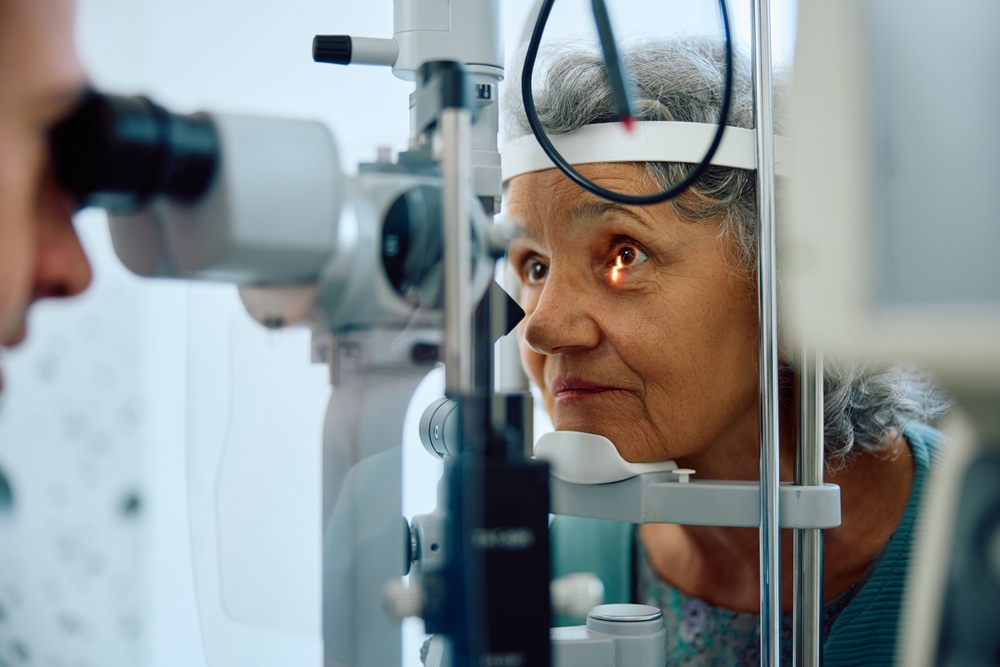Mark Kopec Now
Ophthalmologist
Medical Malpractice with the Baltimore Ophthalmologist Lawyer
Ophthalmologists are medical doctors who diagnose and treating eye diseases and conditions. They perform eye exams, administer treatments, and also perform surgery procedures related to the eyes. Due to the sensitive nature of their work and the potential for significant harm if mistakes are made, ophthalmologists are particularly vulnerable to medical malpractice claims. If you have been injured, then you may need the Baltimore Ophthalmologist Lawyer.
Education and Training
To become an ophthalmologist, individuals must complete an educational and training program. This typically involves:
- Undergraduate Degree: A bachelor’s degree, often in a science field such as biology, chemistry, or physics.
- Medical School: Then completion of a four-year medical school program.
- Ophthalmology Residency: Afterward, a three-year residency program that provides specialized training in ophthalmology.
During the residency program, ophthalmologists gain experience in various areas of eye care, including:
- General Ophthalmology: Comprehensive eye exams, diagnosis and treatment of common eye conditions.
- Glaucoma: Diagnosis and management of glaucoma, a leading cause of blindness.
- Retina: Diagnosis and treatment of diseases of the retina, the light-sensitive tissue at the back of the eye.
- Cataracts: Diagnosis and treatment of cataracts, a clouding of the lens of the eye.
- Cornea: Diagnosis and treatment of diseases of the cornea, the clear outer layer of the eye.
- Pediatric Ophthalmology: Diagnosis and treatment of eye conditions in children.
- Oculoplastic Surgery: Surgical procedures to correct eyelid and orbital disorders.

Licensing and Board Requirements
After completing their residency, ophthalmologists then must obtain a medical license from the state where they intend to practice. This generally involves passing a medical licensing examination and meeting other requirements, such as completing continuing medical education courses.
Many ophthalmologists also choose to become board-certified by the American Board of Ophthalmology.
Types of Patients and Conditions
Ophthalmologists see patients of all ages, from infants to the older. They treat a wide range of eye conditions, including:
- Common Eye Problems: Refractive errors (nearsightedness, farsightedness, astigmatism), dry eye, conjunctivitis (pink eye), and blepharitis (inflammation of the eyelids).
- Age-Related Eye Diseases: Cataracts, glaucoma, macular degeneration, and diabetic retinopathy.
- Eye Injuries: Sports injuries, chemical burns, and foreign objects in the eye.
- Childhood Eye Problems: Strabismus (crossed eyes), amblyopia (lazy eye), and congenital cataracts.
- Eye Infections: Bacterial, viral, and fungal infections.
- Eye Tumors: Benign and malignant tumors of the eye and its surrounding structures.
The Baltimore Ophthalmologist lawyer at the Kopec Law Firm can review with you the medical condition that you sought treatment for.
Tests and Treatments
Ophthalmologists use a variety of tests and treatments to diagnose and treat eye conditions. These generally include:
- Eye Exams: Comprehensive eye exams, including visual acuity testing, dilation of the pupils, and also examination of the retina and optic nerve.
- Imaging Tests: Optical coherence tomography (OCT), fluorescein angiography, and ultrasound.
- Surgery: Eye Surgeries such as cataract surgery, glaucoma surgery, retinal surgery, eyelid surgery, refractive surgery (LASIK, PRK).
- Medications: Eye drops, oral medications, and injections.
- Contact Lenses: Contact lenses for vision correction, therapeutic purposes, or cosmetic reasons.
Work Environment and Collaboration
Ophthalmologists generally work in private practices, hospitals, or academic medical centers. They may also work in specialized clinics, such as glaucoma clinics or retina clinics.
Ophthalmologists often collaborate with other medical professionals, such as:
- Optometrists: Provide primary eye care and afterward may refer patients to ophthalmologists for specialized care.
- Opticians: Dispense eyeglasses and contact lenses.
- Other Physicians: General practitioners, internists, and specialists in related fields (e.g., neurology, endocrinology).
- Nurses: Assist with patient care and procedures.
Medical Malpractice with the Baltimore Ophthalmologist Lawyer
Medical malpractice claims against ophthalmologists can arise from a variety of errors, including:
- Diagnostic Errors: Misdiagnosis or delayed diagnosis of eye conditions.
- Treatment Errors: Incorrect treatment, wrong medication, or surgical errors.
- Failure to Obtain Informed Consent: Failure to adequately explain the risks and benefits of a procedure.
- Negligence: Failure to provide reasonable care or follow accepted standards of practice.
Next Step: Call the Baltimore Ophthalmologist Lawyer
If you believe you may have been the victim of medical malpractice by an ophthalmologist, then it is important to consult with an experienced medical malpractice attorney. We can help you understand your legal rights and options.
Visit the Kopec Law Firm free consultation page or video. Then contact us at 800-604-0704 to speak directly with Attorney Mark Kopec. He is a top-rated Baltimore medical malpractice lawyer. The Kopec Law Firm is in Baltimore and pursues cases throughout Maryland and Washington, D.C.





